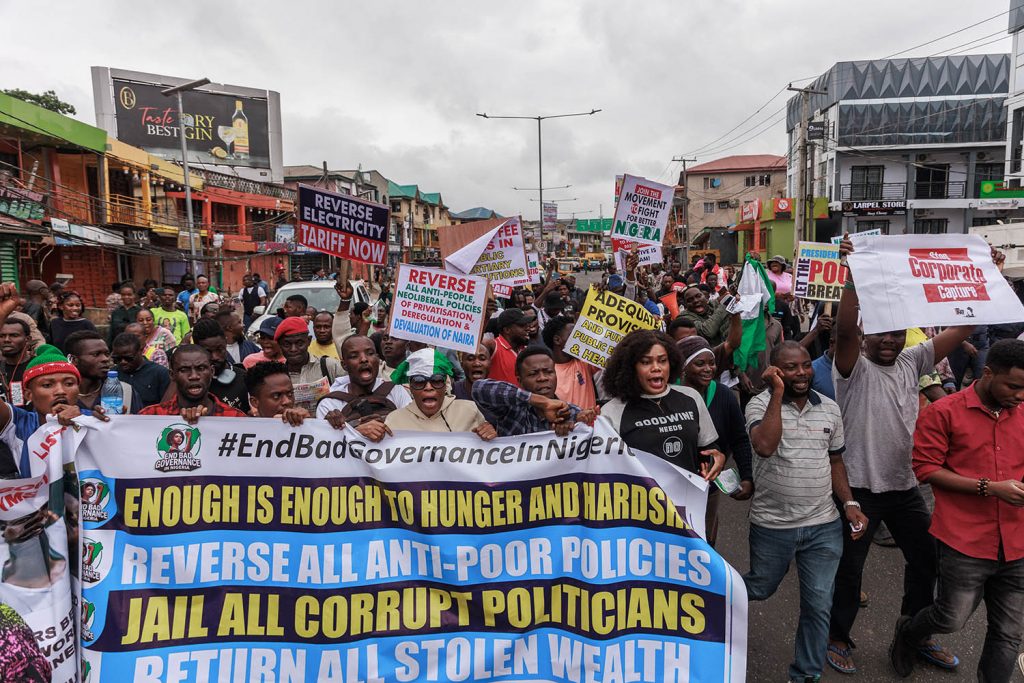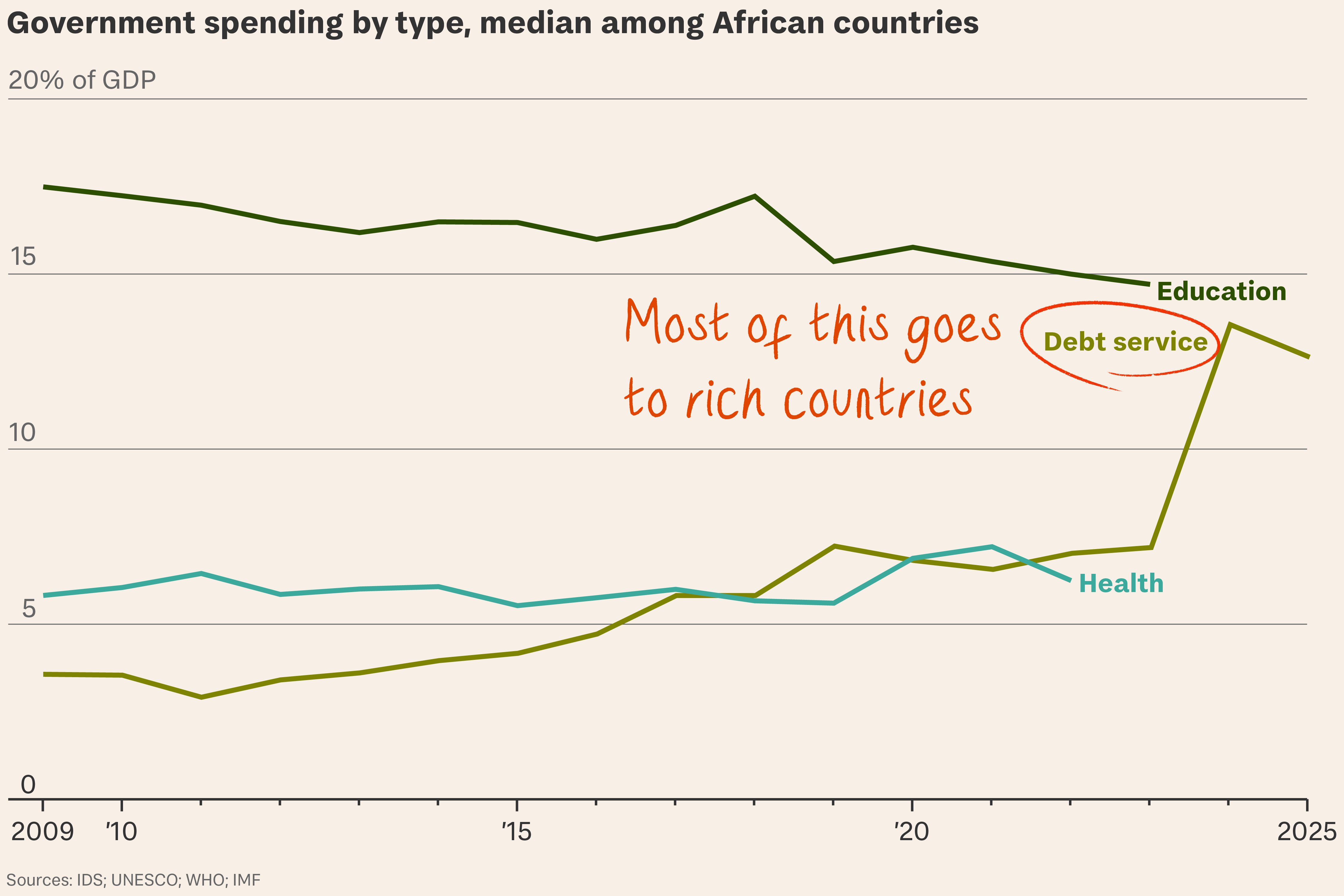
Nigeria’s president Bola Tinubu addressed the nation yesterday for the first time since anti-government protests began last week over a cost of living crisis. Since taking office last May, Tinubu has introduced reforms to boost the economy, including partially removing fuel subsidies and relaxing foreign exchange restrictions on the naira. But the naira has now lost 70 per cent of its value against the dollar and inflation has reached a three-decade high of 34 per cent, in a country where 40 per cent of the population already live in poverty. Amnesty International said 13 people were killed by security forces on 1 August, when protests broke out, with more than 700 arrested nationwide.
Shots and teargas were fired at demonstrators who had gathered in the capital of Abuja on Saturday; several states have put curfews in place.
The protests, organised under the hashtag #EndBadGovernanceinNigeria, are partly inspired by the demonstrations in Kenya last month, which led to a reversal of proposed tax increases.
But while Tinubu claimed to understand people’s “pain and frustration”, he defended his government’s policies as “necessary” to “reverse the decades of economic mismanagement that didn’t serve us well”.
Tinubu called for “dialogue” with protest organisers and a suspension of the demonstrations. They are currently due to continue until 10 August.











